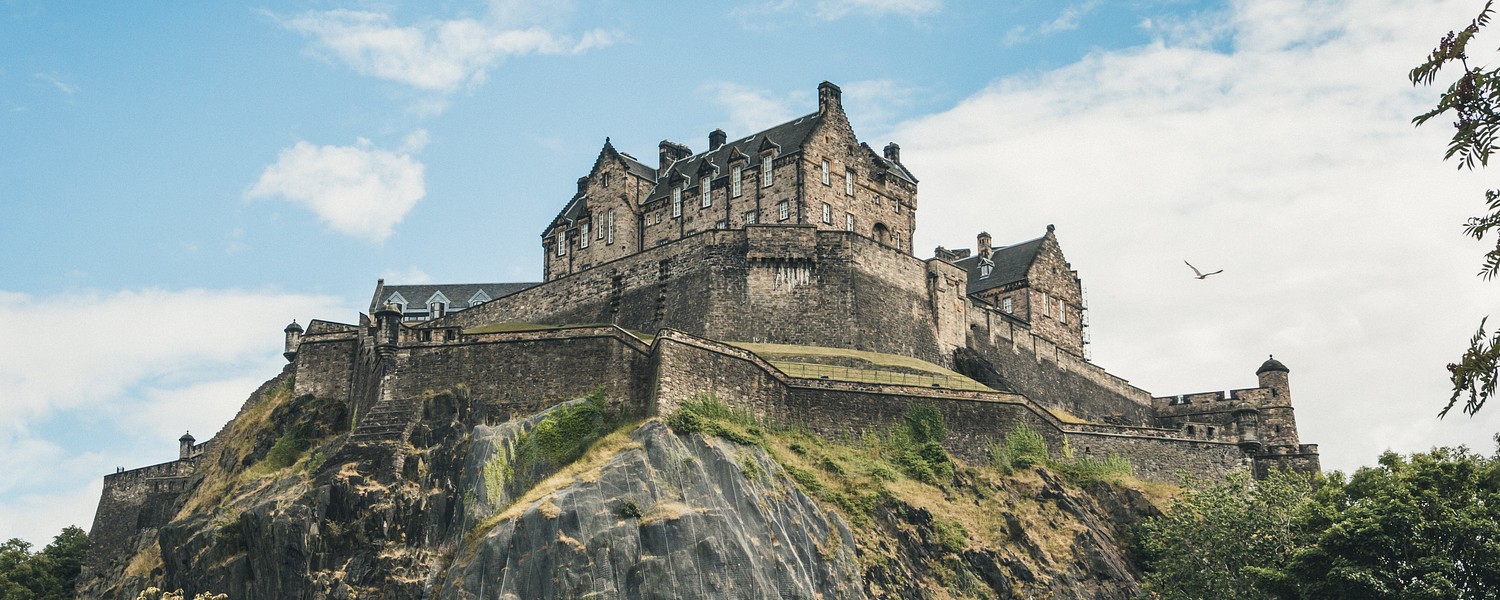
Provided by:
Jörg Angeli/unsplash

Our travel guides are free to read and explore online. If you want to get your own copy, the full travel guide for this destination is available to you offline* to bring along anywhere or print for your trip.
*this will be downloaded as a PDF.Price
€4,95
The City
The guide was updated:
Edinburgh's origins can be traced back to the 7th century when it was settled by the Celtic Votadini tribe. By the 10th century, the city had become a prominent stronghold known as 'Dun Eideann' under Scottish rule. The construction of Edinburgh Castle atop Castle Rock in the 12th century solidified its power and played a crucial role in conflicts such as the Wars of Scottish Independence. In 1437, Edinburgh was officially declared the capital of Scotland.
Over the centuries, Edinburgh thrived as a hub of trade and culture. The establishment of the University of Edinburgh in 1583 further enhanced its reputation as an intellectual centre. The 18th-century Enlightenment era brought significant advancements in various fields, with influential figures like David Hume and Adam Smith contributing to Edinburgh's intellectual legacy.
In the 19th century, Edinburgh underwent a transformation during the Industrial Revolution. The city expanded beyond the boundaries of the Old Town with the construction of the Georgian New Town, showcasing stunning neoclassical architecture and becoming a UNESCO World Heritage Site.
Edinburgh continued to evolve in the 20th century, facing both challenges and milestones. The city experienced significant growth and modernisation, with the establishment of renowned festivals such as the Edinburgh International Festival and the Edinburgh Festival Fringe, solidifying its reputation as a cultural capital.
Today, Edinburgh stands as a thriving cosmopolitan city, blending its ancient heritage with a vibrant contemporary spirit. Its iconic landmarks, including Edinburgh Castle, Royal Mile, and Arthur's Seat, attract millions of visitors each year, while its world-class universities, dynamic arts scene, and bustling festivals contribute to its global appeal.
Over the centuries, Edinburgh thrived as a hub of trade and culture. The establishment of the University of Edinburgh in 1583 further enhanced its reputation as an intellectual centre. The 18th-century Enlightenment era brought significant advancements in various fields, with influential figures like David Hume and Adam Smith contributing to Edinburgh's intellectual legacy.
In the 19th century, Edinburgh underwent a transformation during the Industrial Revolution. The city expanded beyond the boundaries of the Old Town with the construction of the Georgian New Town, showcasing stunning neoclassical architecture and becoming a UNESCO World Heritage Site.
Edinburgh continued to evolve in the 20th century, facing both challenges and milestones. The city experienced significant growth and modernisation, with the establishment of renowned festivals such as the Edinburgh International Festival and the Edinburgh Festival Fringe, solidifying its reputation as a cultural capital.
Today, Edinburgh stands as a thriving cosmopolitan city, blending its ancient heritage with a vibrant contemporary spirit. Its iconic landmarks, including Edinburgh Castle, Royal Mile, and Arthur's Seat, attract millions of visitors each year, while its world-class universities, dynamic arts scene, and bustling festivals contribute to its global appeal.


